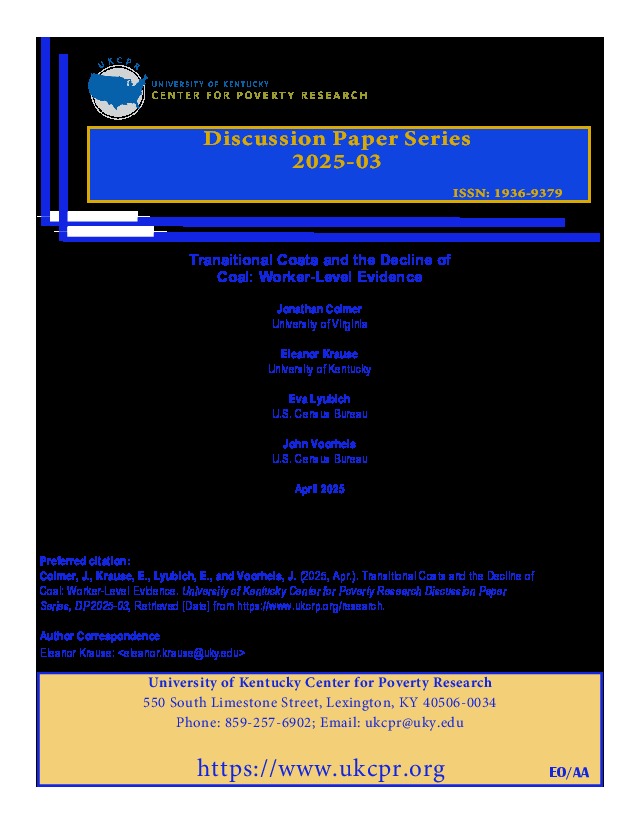The outside options available to workers critically determine the transitional costs of labor demand shocks. Using comprehensive administrative data, we examine the worker-level effects of the decline of coal — a regionally concentrated labor demand shock that reduced employment by more than 50% between 2011 and 2021. We show that coal workers experienced large and persistent earnings losses compared to similar workers less connected to coal. Unlike worker-level analyses of labor demand shocks in more spatially diffuse industries, we find that non-employment is an important margin of adjustment. Workers receive substantially lower earnings when employed. Moving between sectors or regions does little to mitigate these losses. Instead, we observe significant increases in SSDI receipt. Our findings suggest that transitional costs are higher in regionally concentrated industries when skills do not easily transfer across sectors.
Research
InequalityPDF Thumbnail
